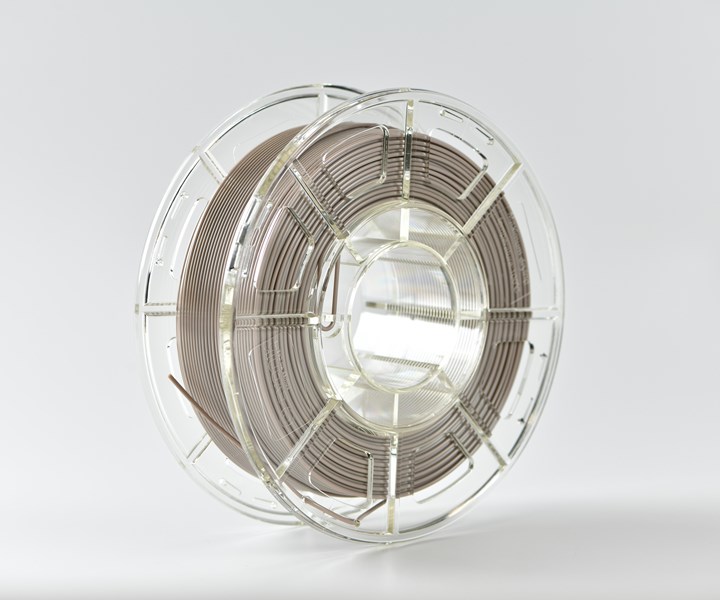Materials: Implant-Grade PEEK Filament for Medical Applications in 3D Printing
The material was developed for fused filament fabrication (FFF) technology.

Evonik’s implant-grade PEEK filament for medical applications in 3D printing.
Evonik has launched a 3D-printable PEEK filament as an implant-grade material for medical applications.
Developing and manufacturing custom-made plastic implants can now be created using additive manufacturing processes that meet the requirements of ASTM F2026 (the standard specification for PEEK polymers for surgical implant applications).
Sold under the brand name VESTAKEEP i4 3DF, this PEEK filament is an implant-grade material based on VESTAKEEP i4 G, a highly viscous, high-performance polymer from Evonik. The company highlights the product’s biocompatibility, biostability, x-ray transparency, and easy handling as key features. The filament is produced under cleanroom conditions and then subjected to stringent quality management standards for medical materials.
The high-performance material was developed for fused filament fabrication (FFF) technology. The natural-colored PEEK filament, which has a diameter of 1.75 mm, is wound on 250- or 500-gram spools suitable for direct use in standard FFF 3D printers for PEEK materials.
In addition to its implant grade, Evonik is also offering a testing-grade version of its PEEK filament. The term refers to a class of material having the exact same product properties as the implant grade, but without the documentation needed for approval in medical technology applications. This offers a cost-effective way of adapting the processing characteristics of the high-performance plastic to a given 3D printer.
Related Content
-
3D Printing of Injection Molds Flows in a New Direction
Hybrids of additive manufacturing and CNC machining can shorten tooling turnaround times.
-
Business Slowing? There's Still Plenty of Stuff to Do
There are things you may have put off when you were occupied with shipping parts to customers. Maybe it’s time to put some of them on the front burner.
-
Additive Fusion Technology Optimizes Composite Structures for Demanding Applications
9T Labs continues to enhance the efficiency of its technology, which produces composite parts with intentionally oriented fibers.















